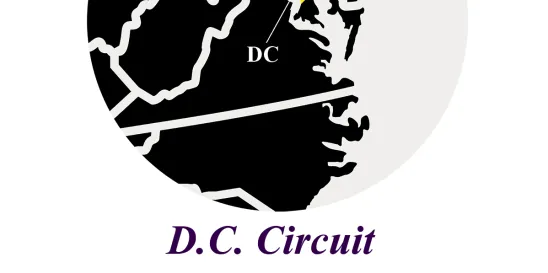Declaring the NLRB’s rationale to be “nonsense,” on March 26, 2024, a unanimous three-judge panel for the United States Court of Appeals for the District of Columbia in Stern Produce Company Inc v. NLRB, refused to enforce the agency’s finding of unfair labor practices.
The Court held that the petitioner-produce company did not create the impression of surveillance of organizing activity and did not retaliate against an employee for participating in unionization efforts. The D.C. Circuit’s decision was illuminating in its rejection of the Board’s and the NLRB General Counsel’s rationale underlying the two unfair labor practice charges, which could shed light on how other similar charges may be viewed by the D.C. Circuit.
Background
Two unfair labor practices based on workplace incidents were alleged in this case. The first charge alleged that a company supervisor violated the National Labor Relations Act (the “Act”) when he texted a truck driver letting him know he could not cover up the cameras installed in the truck. The union alleged in a charge that the text message gave the employee the impression that the company was conducting surveillance of him and his pro-union activities. The employer claimed that it was merely reminding the driver of a longstanding company policy included in their handbook.
The second allegation was that the company violated the Act when it provided a written warning to an employee after an internal investigation revealed that he made comments which violated company policy. The union alleged that the company was punishing this employee in retaliation for his participation in unionization efforts; the union asserted that the employer should have, at most, engaged in verbal counseling and should not have issued a written warning. The employer alleged that the warning was issued in line with their equal employment opportunity policy and the employee’s comments were in violation of that policy.
Administrative Law Judge Sides with Employer on Both Counts
The Administrative Law Judge (“ALJ”) found that the supervisor’s text message about covering up the cameras was a “mere observation” in line with longstanding company policies about truck cameras. The ALJ found the employer’s conduct did not create an impression of surveillance, and thus did not violate the Act.
Regarding the employee who received a written warning, the ALJ determined that the employer issued the warning without knowing if the employee was still involved with the union, and the warning was based on the employees’ offensive and discriminatory comments—not union animus.
The Board Reverses and Finds Employer Violated the Act
On review, the Board reversed the ALJ’s findings on both issues, and found the employer violated the Act as to both unfair labor practice charges. The Board determined that the supervisor’s “sudden and unusual” interest in viewing the truck driver’s cameras created an impression of surveillance in violation of Section 8(a)(1).
The Board also concluded that the employer issued the other employee a written warning – rather than verbal counseling – because it was motivated by union animus in violation of Section 8(a)(3).
D.C. Circuit Court Overrules the Board and Vacates the Order
The employer appealed the Board’s ruling to the D.C. Circuit, which reversed on both counts.
With respect to the allegation of an impression of surveillance related to the supervisor’s text message about covering the truck cameras, the Court found that the employer put drivers on notice that the cameras “must remain on at all times” by including the clause in multiple policies, which reinforced that there was no expectation of privacy within the company trucks. The Court remarked that the Board’s finding in relation to the text message violation was “nonsense”.
Similarly, when addressing whether the employer’s discipline of the other employee was in retaliation for his unionization efforts, the Court found there was not sufficient evidence to sustain an inference that the written warning was a result of the employee’s protected conduct. The Court found the warning was facially consistent with the employer’s equal employment opportunity policy, and rejected the notion that the employer was motivated by union animus.
Key Takeaways
Allegations of employer surveillance that interferes with the exercise of employees’ Section 7 rights has been an issue of focus by the NLRB General Counsel, as highlighted by her 2022 Memo on Employer Surveillance in the Modern Workplace. The D.C. Circuit’s rejection of the Board’s aggressive pro-worker ruling serves to place an important check on the limits of this issue.
Notably, the D.C. Circuit made its frustrations with the Board’s decision and General Counsel’s position evident when vacating the Board’s decision. The Court rebuked the Board and General Counsel, stating, “[T]he Board’s majority and its General Counsel, at least at the time of these proceedings, should have brushed up on the ancient and wise legal doctrine de minimis non curat lex—that is, the law does not concern itself with trifles. Or should not.”
Although the Board adopts a policy of non-acquiescence, meaning it typically does not change precedent based on an appellate court decision, it bears watching the extent to which this decision could impact future Board cases and the General Counsel’s policy agenda on this issue, as well as potentially others.




 />i
/>i
